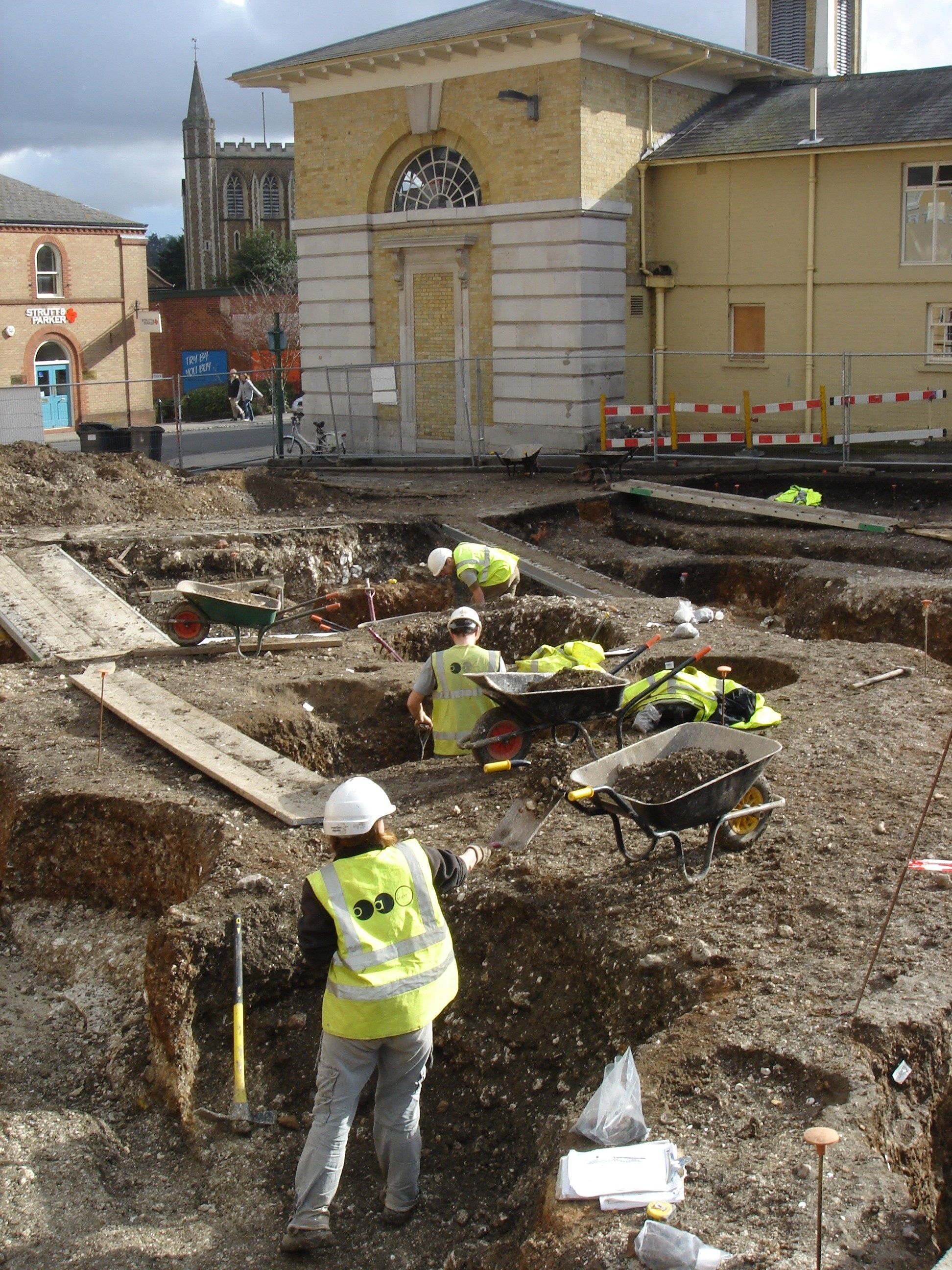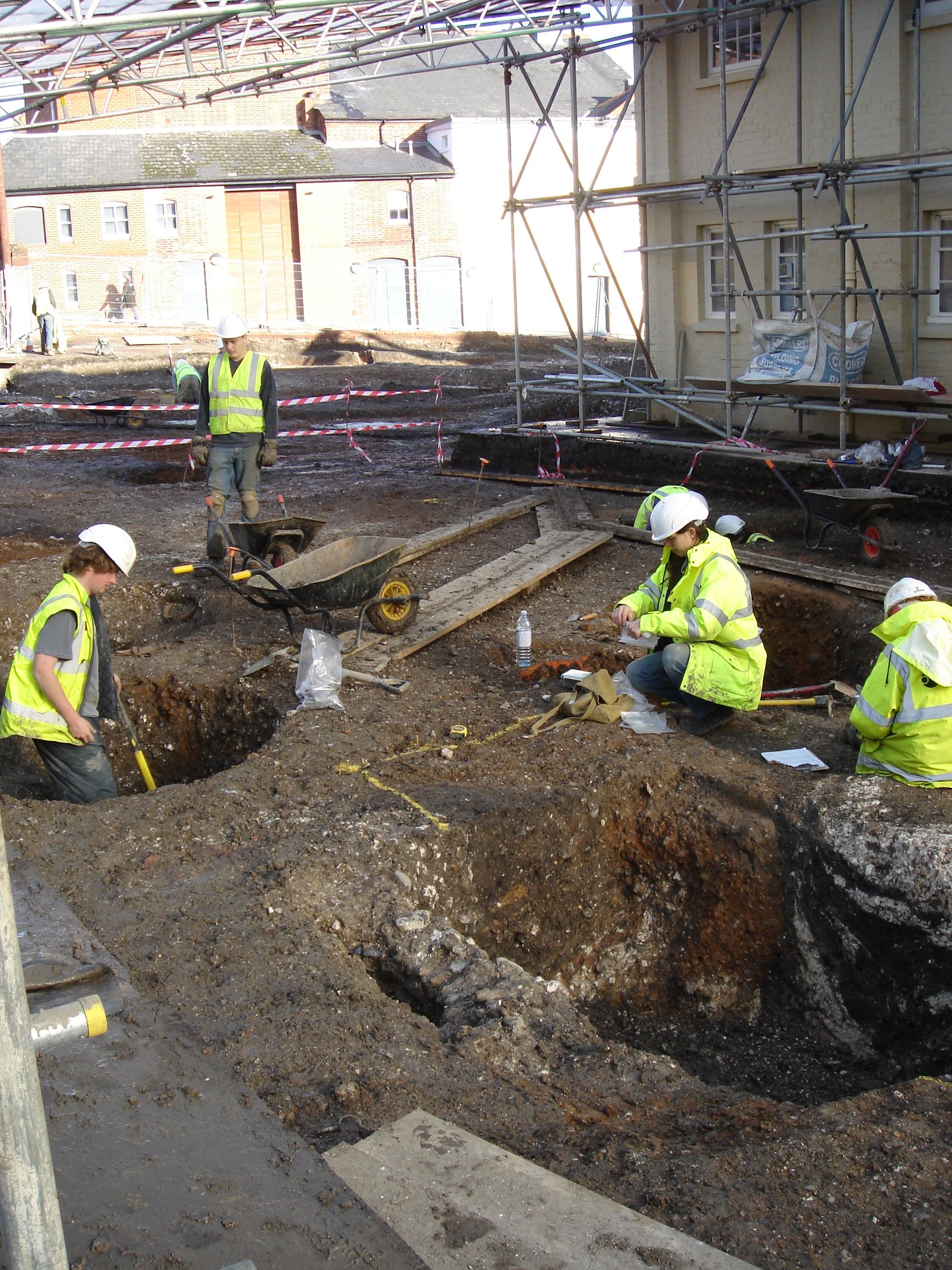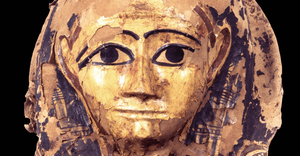Part three of a nine part series of articles from Mark Barden, our Community Cultural Experience Manager here at Hampshire Cultural Trust, 'digging the dirt' on all things archaeology.
Episode 3: Excavation
Archaeological excavations normally only take place in advance of a development or as part of a research project. If the Desk Top Assessment, pre-excavation research, indicates the presence of archaeology on the site there are several recording options available to the archaeologist.
Watching Brief
Archaeologists will be on site during groundworks for the development and be able to record any archaeology uncovered. An arrangement often used for large scale developments such as pipe lines and motorways.
Bore holes
Bore holes are used to test the ground a new building will be sitting on but they can also be used to sample the archaeology. This allows piling, to support the building, to be located away from the most sensitive archaeology, as well as avoiding the need for more extensive excavation resulting from traditional foundation trenches. This is called ‘mitigation’.

Trial trenches
Trial trenches are used to test the survival and extent of archaeological deposits, particularly useful on large area developments. They also allow for a percentage of the archaeology to be excavated under controlled conditions and for building foundations to be redesigned, preserving the unexcavated archaeology in-situ.
Total excavation
Total excavation involves the removal of all archaeological material from a site in advance of development or to achieve a specific research objective. This level of excavation is more likely to be used on rural sites where the archaeological deposits are shallower. In historic towns, with layers of archaeology which may be several metres deep, only the deposits effected by the development will be excavated.

If you have enjoyed Culture on Call and you are able to make a donation, any support you can give will help us keep people connected.



